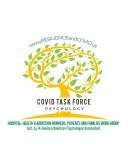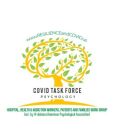Aging
How to Reassess Your Life in Retirement
Retirement offers an opportunity to reflect on values, priorities, and purpose.
Posted June 27, 2024 Reviewed by Tyler Woods
Key points
- Sudden departures from structured routines can evoke feelings of disorientation and loss of identity.
- Individuals put more sustained effort into and are more likely to achieve goals consistent with core values.
- Studies on goal setting theory show that goals aligned with personal values lead to greater well-being.
By Ilana Grunwald, Ph.D., Carmine Desena, LMHC, CRC, & Robert M. Gordon, Psy.D.

Imagine navigating a cross-country road trip solely with a printed map. While it might eventually get you there, new roads, constructions, and unexpected detours will impact your planned journey. Our lives are similar. Our goals and values act as our internal GPS, guiding us. Just like a map, they need regular updates to ensure we are on the most fulfilling route (Dweck, 2006).
The Need for Course Correction
Throughout life, we experience personal growth, encounter unexpected circumstances, discover new passions, and have inevitable setbacks. This can cause misalignment in our goals and values, leading to dissatisfaction, frustration, or stagnation (Vallerand, 2010). At different stages of our lives, our goals, opportunities, and challenges can and should change. Therefore, it is essential to intentionally make time to reassess our course to maximize our sense of fulfillment.
The COVID-19 Catalyst
The COVID-19 pandemic did not just disrupt our daily lives; it impacted the world of work. People found themselves unexpectedly unemployed or confined to home offices, feeling isolated. For some, new ways of working emerged, and with new opportunities. There were inherent challenges as the pandemic blurred the lines between work-life boundaries, but it also offered a unique opportunity for self-reflection.
The pandemic also offered a unique opportunity for self-reflection. Unexpected traumatic events like the pandemic and life transitions can be catalysts for thinking about meaning (Hill, 2018). At such times, our values and priorities may shuffle like a deck of cards. A “card” toward the bottom of the pile for most of one’s life may move to the top of the deck (Remen, 2000).
Witnessing the fragility of employment led many to reassess their values and seek careers aligned with their sense of purpose and well-being (Jiskrova, 2022). This led to a surge in career transitions, impacting both job-seeking and hiring practices (Aidala et al., 2024).
A Unique Challenge for Retirees
Many older adults were profoundly impacted by the pandemic. Many felt they had to retire early rather than risk their health commuting and working in an office. Some, who could work from home, still chose to retire because they were intimidated by the need to learn new technology skills.
Retirement marks a significant juncture in life. It is often accompanied by a shift in routines, roles, and social connections, and can also trigger fears of aging and death, shame, regrets over life’s choices, and feeling irrelevant. COVID-19 intensified these responses, presenting a unique set of challenges for those approaching retirement.
The psychological challenges common to this life stage, such as feelings of isolation and uncertainty, highlight the importance of flexibility and resilience to transition through this phase.
Psychological Challenges
- Abrupt transition: The sudden departure from structured routines can evoke feelings of disorientation and loss of identity (Wang et al., 2014).
- Social isolation: Social distancing measures can exacerbate feelings of social isolation among older adults (Ward et al., 2023).
- Financial concerns: Economic instability and poor financial literacy can leave individuals ill prepared to navigate retirement with increasing financial anxieties (Lusardi et al., 2011).
- Health and safety fears: Personal health and safety concerns can intensify anxieties (Falcó et al., 2022).
The Benefits of Reassessment
Hitting the pause button to reassess values and goals is essential:
- Clarity and focus: Reassessment helps us identify what truly matters now, allowing us to refine goals and prioritize actions aligned with current values. This fosters ego integrity, a sense of coherence, and meaning in life according to Erikson's psychosocial stages (Erikson, 1982). He proposed that successful resolution of the generativity versus stagnation stage in later adulthood involves feeling a sense of accomplishment and contribution to society. Reassessment can help retirees explore new ways to utilize skills and experiences, promoting this sense of purpose.
- Personal growth and course correction: We constantly evolve through experiences, learning, and self-discovery. Sometimes, this leads us away from our initial goals or values. Someone who once prioritized career success may be drawn toward a more balanced life emphasizing relationships and well-being. It is essential to recognize these shifts and recalibrate goals accordingly to maintain a sense of purpose and fulfillment.
- Increased level of joy and satisfaction: Striving for outdated goals can be draining. Reassessment allows us to course-correct towards pursuits that bring joy and fulfillment. Studies on goal-setting theory show that goals aligned with personal values lead to greater well-being (Latham et al., 2007).
- Enhanced adaptability: The world is constantly changing. Reassessment equips us with psychological flexibility—the ability to adapt to changing contexts and maintain focus on what truly matters (Kashdan et al., 2010)
5 Tips for Effective Reassessment
- Schedule dedicated time: Be intentional in a quiet contemplation or journaling.
- Assess needs realistically: Is extra income needed? Are you managing a health concern or serving as a caretaker? Do you feel the need to relocate closer to family and/or a chosen support system?
- Ask introspective questions: Am I satisfied with my current direction? What would bring greater fulfillment? Individuals put more sustained effort into and are more likely to achieve goals that are consistent with core values and developing interests (Sheldon et al., 1999).
- Set your priorities: Have you been putting off pursuing a new hobby or mastering an old one? Is this an opportunity to finally devote yourself to a project or cause you care deeply about? Are there people in your life you want to spend more quality time with?
- Seek external perspectives: Talk to trusted friends, mentors, or a therapist. Engaging with a career counselor or financial planner can provide valuable guidance.
Life Is a Journey, Not a Destination
By regularly reassessing goals and values, older vibrant adults (Felsen, 2023) can equip themselves with the most up-to-date GPS to get to their desired destination in life. By embracing this mindset, we allow for ongoing growth and exploration. By recognizing that goals and values may evolve over time, we can approach life with curiosity, resilience, and flexibility. Regular reassessment ensures that we remain on a path that resonates with our authentic selves.
Ilana Grunwald, Ph.D., is the clinical assessment coordinator at Rusk Rehabilitation and a Clinical Assistant Professor at New York University Grossman School of Medicine. Carmine Desena, LMHC, CRC, is a behavioral health director of Ambulatory Psychiatric Rehabilitation at the Zucker Hillside Division of Northwell Health. Robert M. Gordon, Psy.D., is a clinical associate professor at the New York University Grossman School of Medicine. He is a member of the APA's Medicine & Addictions workgroup.
References
Aidala, F., Kosar, G., & van der Klaauw, W. (2024). The post pandemic shift in retirement expectations in the U.S., Liberty Street Economics, Online post May 9, 2024.
Dweck, C. S. (2006). Mindset: The New Psychology of Success. Random House.
Erikson, E. H. (1982). The Life Cycle Completed. Norton.
Falcó, R, Vidal-Arenas V, Ortet-Walker J, Marzo J. C., Piqueras J. A. PSICO-RECURSOS COVID-19 Study Group. Fear of COVID-19 and emotional dysfunction problems: Intrusive, avoidance and hyperarousal stress as key mediators. World J Psychiatry. 2022 Aug 19;12(8):1088-1101. https://doig.10.5498/wjp.v12.i8.1088
Hill, C. E. (2018). Meaning in Life: A Therapist’s Guide. American Psychological Association. http://dx.doi.org/10.1037/0000083-000
Felsen, I., Frumer, J., Safir, M. P., Farberg, T., & Quaranta Morrisey, M. B. (2023). Vibrant older adults. In C. R. Figley, L. E. A. Walker, & I. A. Serlin (Eds.). Pandemic Providers: Psychologists Respond to COVID (pp. 75–102). Springer.
Jiskrova G. K., (2022). Impact of COVID-19 pandemic on the workforce: From psychological distress to the Great Resignation. Journal of Epidemiology and Community Health, 2022; 76, 527–536. https://doi.org/10.1136/jech-2022-218826
Kashdan T. B., & Rottenberg J. (2010). Psychological flexibility as a fundamental aspect of health. Clinical Psychology Review, 30(7), 865–878. https://doi.10.1016/j.cpr1020.03.001
Latham, G. P., & Locke, E. A. (2007). New developments in and directions for goal-setting research. European Psychologist, 12(4), 290–300.
Lusardi, A., & Mitchell, O. (2011). Financial literacy around the world: An overview (No. w17107). National Bureau of Economic Research.
Remen, R. N. (2000). My Grandfather’s Blessings: Stories of Strength, Refuge, and Belonging. Riverside Books.
Sheldon, K. M., & Elliot, A. J. (1999). Goal striving, need satisfaction, and longitudinal well-being: The self-concordance model. Journal of Personality and Social Psychology, 76(3), 482–497.
Vallerand, R., Paquet, Y., Phillipe, F., & Charest, J., (2010). On the role of passion for work in burnout: A process model. Journal of Personality, 78(1) 289–312.
Wang, H. Y., & Shi, Y. L. (2014). The impact of perceived control on retirement adjustment: A moderated mediation model of self-efficacy and social support. Journal of Happiness Studies, 15(1), 289–312.
Ward, M, Briggs, R, McGarrigle, C. A., De Looze, C, O'Halloran, A. M. & Kenny, R.A. (2023). The bi-directional association between loneliness and depression among older adults from before to during the COVID-19 pandemic. International Journal of Geriatric Psychiatry, 38(1), e5856.




